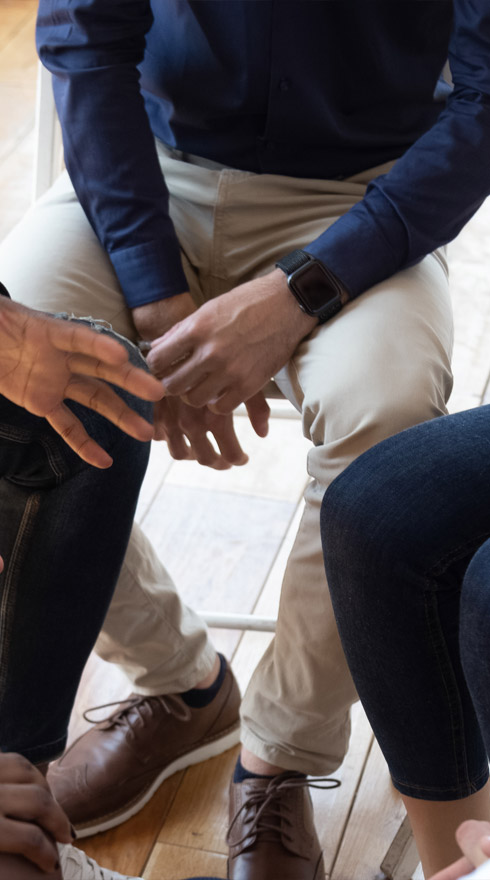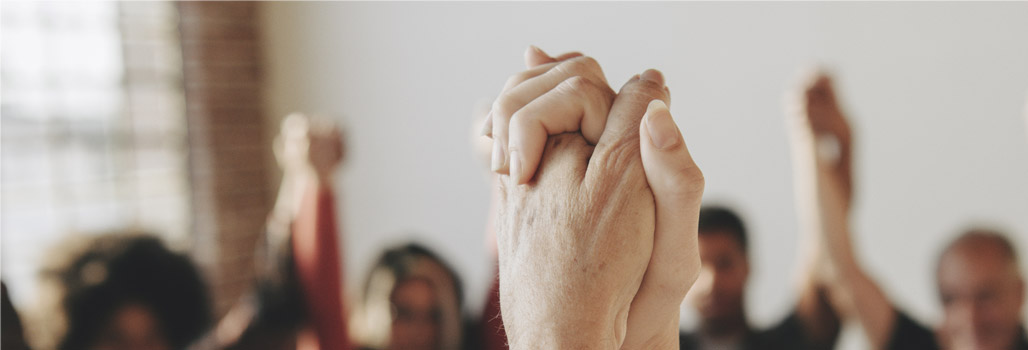Because of the struggles that are connected with alcohol and drug dependence, many struggling do not know where to begin. Although addiction is a disease, it is treatable when evidence-based therapies are utilized. Long term recovery is achievable.
We will detail how addiction recovery is achievable for you or a loved one if an holistic treatment method is utilized.
What is Addiction Rehab (Rehabilitation)?
Addiction ‘rehab’ is the process of medical treatment and therapy to tackle your addiction to on drugs such as recreational drugs, prescription medications and alcohol. Rehab is more effective when it is tailored to your own needs and incorporates a medical detox, inpatient and outpatient care, as well as relapse prevention techniques.

Facts & Statistics about Addiction in San Bernardino
Prevalence of Substance Use Disorder, by Drug Type
(IN THOUSANDS)
- 2,7578.5%Any Substance
- 2,0886.4%Alcohol
- 1,0683.3%Ilicit Drugs
- 2060.6%Pain Medication
Drug- and Alcohol-Induced Deaths by Age Group, California, 2016
- Alcohol-Induced
- Drug-Induced
- 18 to 250.5
- 9.6
- 26 to 354.3
- 13.9
- 36 to 6424.2
- 22.9
- 65+23.7
- 9.4
Drug Use, by Selected Type and Age Group California, 2015 to 2016
- 12 to 17
- 18 to 25
- 26+
- Marijuana*13.2%
- 34.0%
- 13.5%
- Misuse of Pain Medications3.5%
- 8.0%
- 4.3%
- Cocaine0.8%
- 7.2%
- 1.8%
- Heroin0%
- 0.4%
- 0.2%
What are the treatment options available in San Bernardino?
An integrated solution is considered the best way to address and recover from the underlying causes of substance use disorders and alcohol dependence. Even though addiction symptoms need to be addressed, life skills must also be learnt in order to focus on the causes of your substance misuse.
Private Residential Programs
If you stay at the center where you are receiving addiction treatment, you are part of a residential treatment program. The key benefit is that you will receive holistic support and treatment every day. By moving out of your comfort zone and into a treatment facility, you will protect yourself from the obvious triggers that culminated in you developing a drug dependency.
By opting to stay in a safe and supportive environment, you have a better chance of finishing your treatment program while protecting yourself against relapse and its potential dangers. Residential rehab programs are considered most effective if your substance dependency is chronic or severe, or if you experience co-occurring disorders or have a dual diagnosis.
Addiction recovery is attainable if you enroll in a residential treatment program, but if you expect to maintain sober living you are going to have to rise above the challenges that are associated with the first year of recovery. Finishing your residential treatment program is the start of your new, independent life and you need to focus on setting goals for your substance-free future.
Do You Need Help?
Our addiction advisers are here to help you.

Sober Living Programs
Sober living programs are designed with the needed support to help people in recovery get what they need from their new life. They help you through:
- A house manager to check in with you on a daily basis
- Establish guidelines for your behavior in recovery
- Friendship and support from those who are in the same position as you are.
Outpatient Programs
Outpatient programs are easier to adjust to so that you can maintain your work and family commitments and still receive treatments, by attending the rehab center regularly.
Outpatient programs typically offer:
- Education focusing on drug use
- Counseling and talking therapies through the use of group interventions and individual sessions with a skilled addiction counselor. – Outpatient programs typically run from a few months to more than a year, and your personal needs will determine the length of treatment.
Detox Only Programs
Going through a detoxification program is a vital stage in rehab as it helps address your physical dependency by eliminating substances from your system. As your body returns to normal function without substances in your system, you may experience the symptoms of withdrawal.
This is the beginning of your rehab process, following which you will identify and overcome the underlining causes of your addiction to avoid repeating those same cycles. Many drugs result in withdrawal and cravings for a period of time after they have been removed from your system. Relapse is less of a threat when you are equipped with the vital skills necessary to navigate your journey in recovery.
Paying for Private Treatment
If you choose private rehab, you can pay for treatment by funding it yourself or claim directly through your healthcare insurance. Many insurance providers will allow you to claim at least some of the costs of rehab, including medical detox, a treatment program, and any medications you may need. The total amount you can claim will be determined by your policy rules and your provider.
We recommend that you find out how much cover you are entitled to before enrolling in a program. Our Verify Your Insurance page – https://www.unitedrecoveryca.com/verify-your-insurance/ – will determine the amount of cover you can claim against.
Clients will be responsible for the cost of rehab if they do not claim from their insurance policy. Some rehab centres include payment options to clients so that they can pay for treatment in instalments.
State Funded Programs
State-funded rehabilitation programs were created for individuals who struggle with alcohol addiction or substance dependencies and who may not be able to fund private treatment. With the help of stipends from state, federal and Medicaid budgets, these treatment programs can remove hurdles to treatment by providing:
- Programs for a safe detox (medically-assisted if required.
- Rehab treatments and extended support services
State-funded rehab programs offer support to individuals with little to no disposable income or do not have health insurance. In order to qualify you will need to provide information about:
- Medical records regarding your addiction issues
- Evidence of residence
- Proof of your income
- Certification that you live legally in the US
You can learn more about applying by visiting https://www.grants.gov/. You can also find direct contact details for your state agency by clicking here: https://www.samhsa.gov/sites/default/files/single-state-agencies-directory-08232019.pdf

The following state-funded addiction rehab programs are available in San Bernardino:
Inland Valley Recovery Services San Bernardino Recovery Center
939 North D Street, San Bernardino, CA 92410
909-889-6519
www.inlandvalleyrecovery.orgVeterans Alcoholic Rehab Prog (VARP) Kienzle House
1094 North D Street, San Bernardino, CA 92410
909-884-0840
www.varpinc.org
Maintaining Addiction Recovery in San Bernardino
When you leave treatment, you may experience some challenges. The rehab environment was controlled and safe, and you were given professional support. When you leave, you may encounter new challenges or triggers that test your coping skills in ways you may not have anticipated.
Long term sobriety is more difficult to maintain when you have had a severe dependency and do not have social support when you leave rehab. Relapse is a possibility without the right aftercare and support groups to help you navigate your new life.
The following AA/NA meetings are available in San Bernardino:
CA - LADIES NITE OUT
Open, Participation, Speaker, Chips Presented,
Handicapped, Access and Women Only (Speaker every other week):
6948 Elmwood Road, San Bernardino, CA 9240
Monday: 7:00 PM
http://www.inlandempireareaca.org/Home Away from Home
Open, Timer and Wheelchair:
939 North D Street, San Bernardino, 92410
Sunday: 6:00 pm – 7:30 pm
https://www.eietodayna.org/meetings/Message of Hope
Open, Beginners, Basic Text, Children under Supervision,
Guiding Principles, Speaker, Timer, Wheelchair,
Children Welcome, No Cell Phones and Literature Study:
939 North D Street, San Bernardino, CA, 92410
Saturday: 6:00 pm – 7:30 pm
https://www.eietodayna.org/meetings/
Aftercare & Alumni Programs
By participating in an aftercare program you get extended rehab support when you go home. Because no one can predict what could happen in life, an estimate of 60% of clients in recovery sadly relapse, this makes ongoing aftercare an important part of addiction recovery. When you near the completion of your treatment program, you will need to consider the therapies and services that will help you with your long-term recovery, and we will create an aftercare program to support you.
After the successful completion of your rehab treatment program you will become eligible to join an alumni community program so you can stay close to staff and peers. You will enjoy access to mentorship and guidance from other members in recovery, as well as attend other Alumni events. You may also choose to return the favor by showing support towards other members.
Support Groups (Fellowship Meetings)

Support groups remain a vital resource because they integrate social structures into addiction recovery. If you join a group that follows the 12-step model, like Alcoholics Anonymous and Narcotics Anonymous, you will receive life-long support through regular meetings. During meetings, individual members open up and share their experiences and learn from the experiences of others. Through companionship and staying committed to the programme, those in recovery can feel empowered to take responsibility for themselves and protect those that love them most.
Support for Families & Children Affected by Addiction

Those living in a family with addiction issues are affected, in different ways, by its negative consequences. All members of a family need guidance with a household addiction, not only the addicted person. By joining family support groups, you will learn to manage stressful situations more efficiently, and be able to support your loved one recovering from addiction.
Some useful support groups for families include:
- Parents of Addicted Loved Ones
- SMART Recovery Family & Friends
- NAMI Family Support Groups
- Al-Anon
- Families Anonymous
- Alateen
- Nar-Anon









